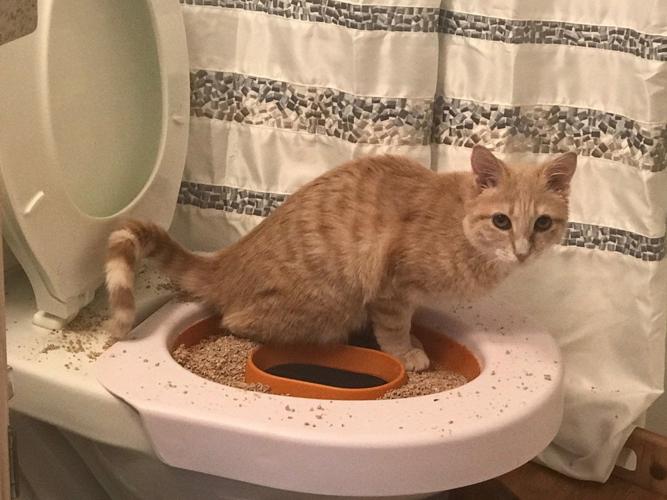Hazards of Flushing Cat Poop Down Your Toilet - Prevent Potential Issues
Hazards of Flushing Cat Poop Down Your Toilet - Prevent Potential Issues
Blog Article
Just how do you feel when it comes to Don’t flush cat feces down the toilet?

Intro
As pet cat owners, it's vital to be mindful of how we throw away our feline friends' waste. While it may seem convenient to flush feline poop down the bathroom, this practice can have detrimental repercussions for both the setting and human wellness.
Environmental Impact
Purging pet cat poop presents dangerous microorganisms and parasites right into the water supply, positioning a significant threat to aquatic environments. These impurities can negatively impact aquatic life and compromise water high quality.
Health and wellness Risks
In addition to ecological concerns, flushing pet cat waste can additionally posture health and wellness threats to human beings. Pet cat feces may consist of Toxoplasma gondii, a parasite that can create toxoplasmosis-- a potentially extreme disease, particularly for expectant females and people with weakened body immune systems.
Alternatives to Flushing
The good news is, there are much safer and much more responsible ways to get rid of cat poop. Consider the following options:
1. Scoop and Dispose in Trash
One of the most usual method of getting rid of pet cat poop is to scoop it right into a biodegradable bag and toss it in the garbage. Be sure to make use of a devoted clutter scoop and deal with the waste promptly.
2. Usage Biodegradable Litter
Opt for naturally degradable pet cat litter made from products such as corn or wheat. These litters are environmentally friendly and can be securely taken care of in the trash.
3. Bury in the Yard
If you have a backyard, consider hiding pet cat waste in a designated location far from vegetable gardens and water resources. Make certain to dig deep enough to prevent contamination of groundwater.
4. Install a Pet Waste Disposal System
Buy a pet dog waste disposal system especially created for cat waste. These systems use enzymes to break down the waste, reducing smell and ecological influence.
Verdict
Liable pet ownership extends beyond supplying food and sanctuary-- it additionally entails correct waste administration. By refraining from flushing feline poop down the commode and choosing different disposal approaches, we can lessen our environmental footprint and protect human wellness.
Why You Should Never Flush Cat Poop Down the Toilet
A rose by any other name might smell as sweet, but not all poop is created equal. Toilets, and our sewage systems, are designed for human excrement, not animal waste. It might seem like it couldn’t hurt to toss cat feces into the loo, but it’s not a good idea to flush cat poop in the toilet.
First and foremost, assuming your cat uses a litter box, any waste is going to have litter on it. And even the smallest amount of litter can wreak havoc on plumbing.
Over time, small amounts build up, filling up your septic system. Most litter sold today is clumping; it is made from a type of clay that hardens when it gets wet. Ever tried to scrape old clumps from the bottom of a litter box? You know just how cement-hard it can get!
Now imagine just a small clump of that stuck in your pipes. A simple de-clogger like Drano isn’t going to cut it. And that means it’s going to cost you big time to fix it.
Parasitic Contamination
Believe it or not, your healthy kitty may be harboring a nasty parasite. Only cats excrete Toxoplasma in their feces. Yet it rarely causes serious health issues in the cats that are infected. Most people will be fine too if infected. Only pregnant women and people with compromised immune systems are at risk. (If you’ve ever heard how women who are expecting are excused from litter cleaning duty, Toxoplasma is why.)
But other animals may have a problem if infected with the parasite. And human water treatment systems aren’t designed to handle it. As a result, the systems don’t remove the parasite before discharging wastewater into local waterways. Fish, shellfish, and other marine life — otters in particular — are susceptible to toxoplasma. If exposed, most will end up with brain damage and many will die.
Depending on the species of fish, they may end up on someone’s fish hook and, ultimately on someone’s dinner plate. If that someone has a chronic illness, they’re at risk.
Skip the Toilet Training
We know there are folks out there who like to toilet train their cats. And we give them props, it takes a lot of work. But thanks to the toxoplasma, it’s not a good idea.

I was guided to that article on Don’t flush cat feces down the toilet through an acquaintance on a different web address. You should take the time to promote this page if you appreciated it. Thank you for taking the time to read it.
Estimating Report this page